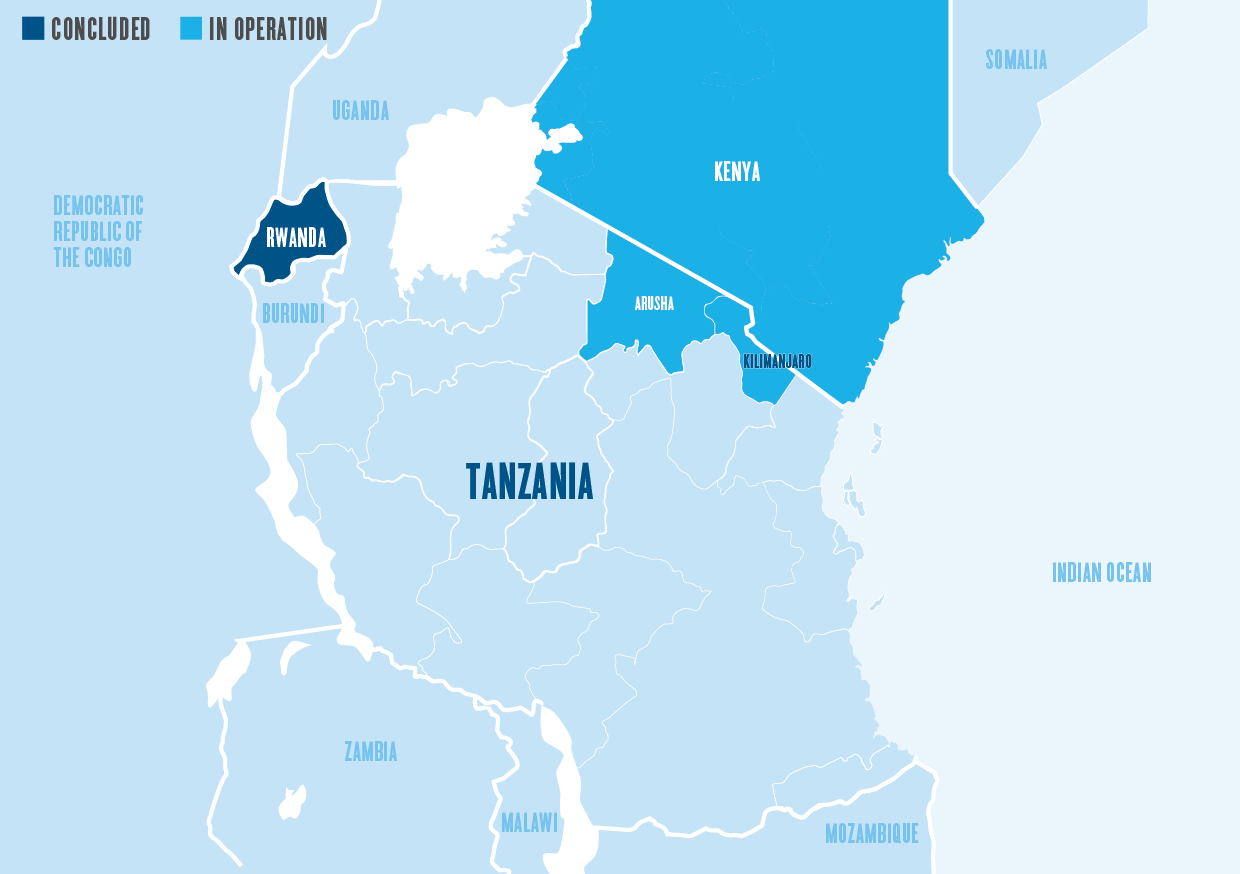Results: Tanzania
There is no shortage of regions in Hand in Hand’s newest operating country that could benefit from Hand in Hand’s training. To begin with, we’re focusing on five: Arusha Rural and Meru in Arusha, and Moshi Rural, Hai and Rombo in Kilimanjaro. Across all of them, the estimated rural adult population living in poverty is 293,110. If Hand in Hand achieves our goal – creating 200,000 jobs by 2021 – a significant majority (68 percent) of impoverished adults in our target areas will see their lives transformed.
9,056 members
Every Hand in Hand entrepreneur starts as Self-Help Group member. Mobilised by local Hand in Hand trainers and numbering about 20 members each, Self-Help Groups learn together, save together and, almost as frequently, launch enterprises together.
4,250 businesses
According to a survey of our target areas conducted by Ipsos for Hand in Hand, only 9 percent of households earn their income solely from business – owning a shop, say, or transporting people and goods on motorcycles. An additional 15 percent earned a portion of their income from business. The rest, 76 percent, relied entirely on farming to see them through, many at the subsistence level. For the most part, our efforts will focus on helping this last group transform their subsistenve farms into viable agribusinesses, and to establish side businesses to sustain them through periods of flooding and drought.
6,190 jobs
Jobs are at the core of Hand in Hand’s work. Besides farming, Hand in Hand entrepreneurs in Tanzania run shops, work as tailors as more. Whatever they do, our priority is to make sure their jobs are sustainable, long outlasting Hand in Hand’s support.
Expansion map
To start with, we’ll be focusing on two regions in the country’s northeast. Densely populated, relatively literate and demonstrating a strong appetite for entrepreneurship, Arusha and Kilimanjaro provide an ideal context for our work. They’re also just across the border from Kenya, home of Hand in Hand Eastern Africa. 
Independent reports
Hand in Hand strives to be as transparent as possible. To download the independent baseline study informing our Tanzania operation, click below.
Download PDF
